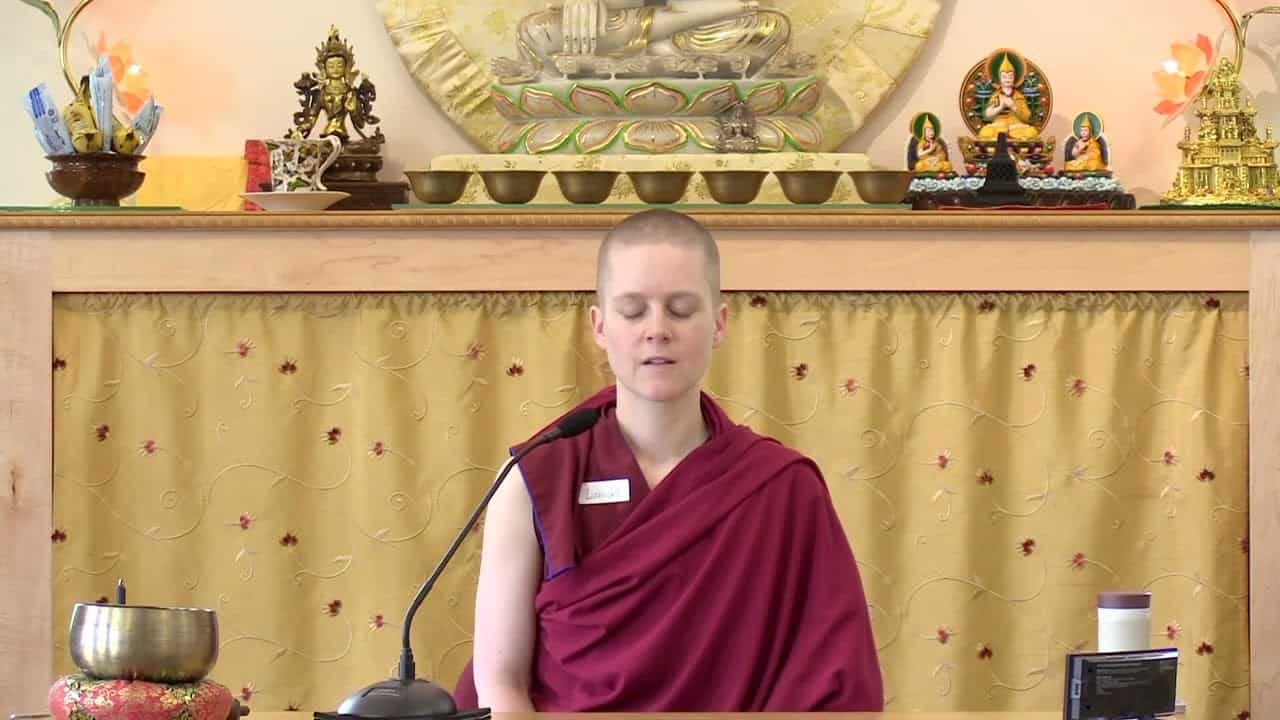Review of true duhkha
71 Samsara, Nirvana, and Buddha Nature
Part of an ongoing series of teachings (retreat and Friday) based on the book Samsara, Nirvana, and Buddha Nature, the third volume in The Library of Wisdom and Compassion series by His Holiness the Dalai Lama and Venerable Thubten Chodron.
- Four attributes of true duhkha and distorted conceptions counteracted by them
- Realms of existence
- Desire realm, form realm, formless realm
- Substantial cause or mental state corresponding to rebirth in a realm
- Three types of duhkha
- Feeling and affliction related to each type of duhkha
Samsara, Nirvana, and Buddha Nature 71: Review of True Duhkha (download)
Contemplation points
- What are the Four Nobles Truths and as a practitioner, why are they so important to know by heart?
- Consider the distortion of each of the four attributes of true dukkha: seeing things as permanent, seeing what is in the nature of dukkha as happiness, we grasp to things as pure that are actually foul, we attribute a self to that which is selfless. How have each of these brought suffering in your own life?
- Consider each of the different realms of existence by comparing them to experiences you’ve had in the human realm.
- Make some examples of the dukkha of pain. Do you have more mental or physical pain in your life? With mental pain, how do you know you are suffering? Why is it that the more we accept what our body and mind actually are, the less suffering we’ll have?
- What is the dukkha of change? Why is it that we see this form of dukkha as happiness? When an opportunity for a pleasurable experience arises (i.e. dessert, praise, etc), consider that it will not last for more than a few moments. Does this end up changing the way you interact with the experience?
- What is the dukkha of pervasive conditioning? Describe in your own words why awareness of this punctuates making use of our precious human life.
Venerable Thubten Chonyi
Ven. Thubten Chonyi is a nun in the Tibetan Buddhist tradition. She has studied with Sravasti Abbey founder and abbess Ven. Thubten Chodron since 1996. She lives and trains at the Abbey, where she received novice ordination in 2008. She took full ordination at Fo Guang Shan in Taiwan in 2011. Ven. Chonyi regularly teaches Buddhism and meditation at the Unitarian Universalist Church of Spokane and, occasionally, in other locations as well.


